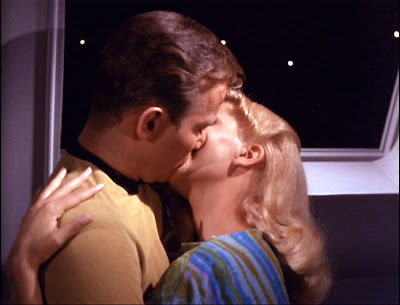The Galileo Seven is an odd episode of
Star Trek: The Original Series. It's basically a disaster movie.
With Spock in the role of the plucky hero who leads everyone to
safety. His turn as leader is hindered by the fact that for some
unfathomable reason, he has lost all of the emotional sensitivity
that he exhibited in the previous episodes. Not only has he lost his
emotional sensitivity, he has turned into a Forrest Gump of emotional
sensitivity, unintentionally alienating everyone around him. It
doesn't help that everyone around him, with the exception of Scotty,
seems to have collectively taken leave of their senses.
For most of The Galileo Seven, we are
presented with Spock making what are basically very sound, rational
decisions given the situation the eponymous seven Enterprise
crewmembers are in, and everyone else, with the exception of Scotty,
who spends most of this episode with his head under the hood of the
stricken shuttlecraft Galileo, objecting to the choices that he
makes, mainly, it seems, out of spite. It's as if being stranded on
Taurus II has resulted in everyone binning themselves into one of two
categories: Persons principally driven by their id or persons
principally driven by their ego...with almost everyone almost
gleefully giving themselves over to their id.
Irrationality abounds in this episode.
Not only that, but it's trumpeted as something to be proud of,
something that makes us human.
Following this strange logic, the
residents of the local asylum would be the ideal exemplars of all
that is human. I would argue the contrary, that what makes us human
is our rationality or at least our capacity for such. In which case
Mr. Spock would appear to be the most human of all the characters in
this episode. How deliciously ironic that someone who constantly
struggles to suppress his humanity turns out to be the most human of
them all. A foreshadowing of Kirk's eulogy at the end of The Wrath of Khan?
Or maybe I'm reading too deeply into an
episode which is, at the end of the day, basically a disaster movie.















_07.jpg)





